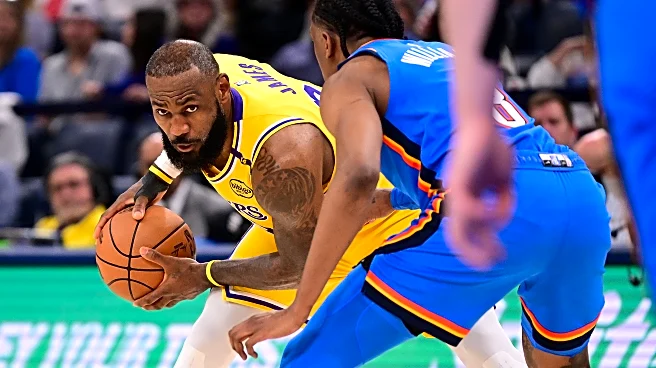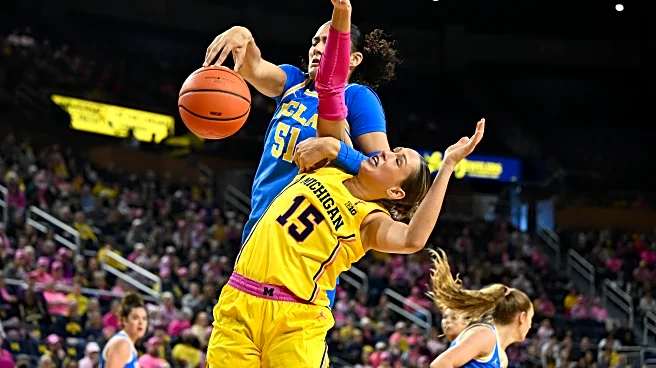What is the story about?
What's Happening?
The Philadelphia Eagles showed interest in drafting Shedeur Sanders, the former Colorado quarterback, during the 2025 NFL draft. According to Deion Sanders, Shedeur's father and Colorado head coach, the Eagles were among several teams, including the Cleveland Browns and Baltimore Ravens, that considered selecting Sanders. Ultimately, the Browns traded up to draft Sanders in the fifth round, while the Eagles chose Kyle McCord in the sixth round. Sanders had a standout season at Colorado, throwing for 4,134 yards and 37 touchdowns, with an additional four rushing touchdowns. Despite the Eagles' interest, Sanders was reportedly not keen on backing up established quarterbacks like Jalen Hurts or Lamar Jackson.
Why It's Important?
The decision by the Eagles to pass on Shedeur Sanders highlights the strategic considerations NFL teams face when selecting quarterbacks. Sanders' reluctance to serve as a backup underscores the challenges teams encounter in managing player expectations and career aspirations. For the Eagles, opting for Kyle McCord reflects their focus on developing talent behind Jalen Hurts, their franchise quarterback. This move could impact the team's future quarterback dynamics and development strategies. Meanwhile, Sanders' choice to join the Browns presents him with a potentially clearer path to a starting role, influencing his career trajectory and the Browns' quarterback lineup.
What's Next?
The Eagles' quarterback situation remains dynamic, with Tanner McKee currently holding the backup position. Kyle McCord, despite being released and re-signed to the practice squad, is part of the team's developmental plans. For Shedeur Sanders, the focus will be on competing for a starting role with the Browns, where he faces competition from Joe Flacco and Dillon Gabriel. The outcomes of these quarterback decisions will likely influence team strategies and player development in the upcoming NFL season.
Beyond the Headlines
The Eagles' interest in Sanders, despite not drafting him, reflects broader trends in the NFL regarding the evaluation and selection of quarterbacks. Teams are increasingly prioritizing players who can immediately contribute or develop into future starters. Sanders' decision to avoid backup roles highlights the evolving expectations of young quarterbacks seeking immediate impact and career advancement. This scenario also illustrates the importance of strategic draft decisions and their long-term implications for team composition and player careers.














